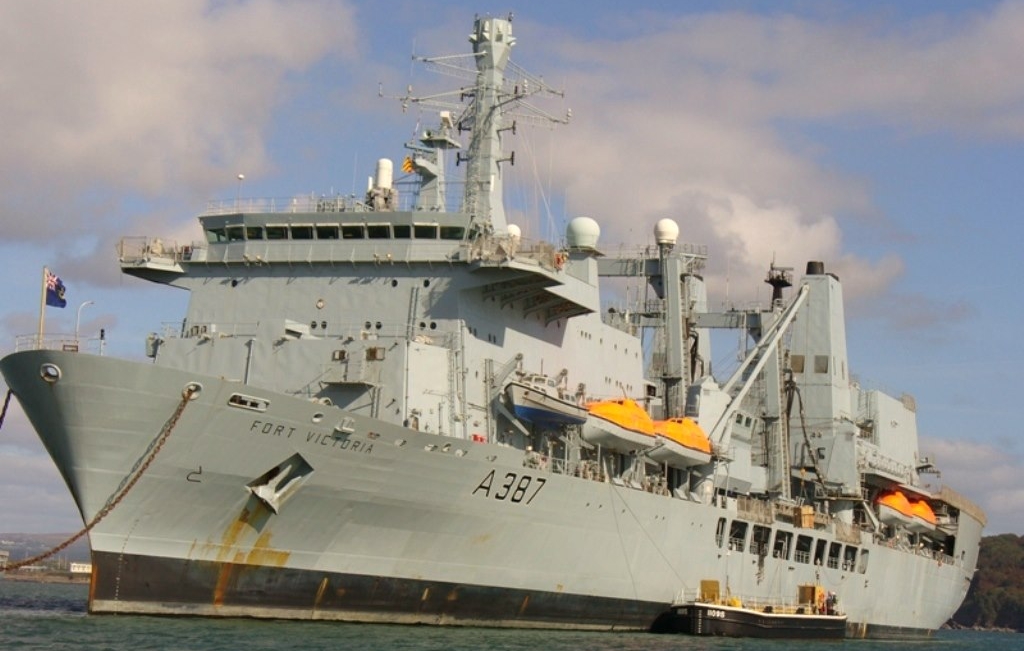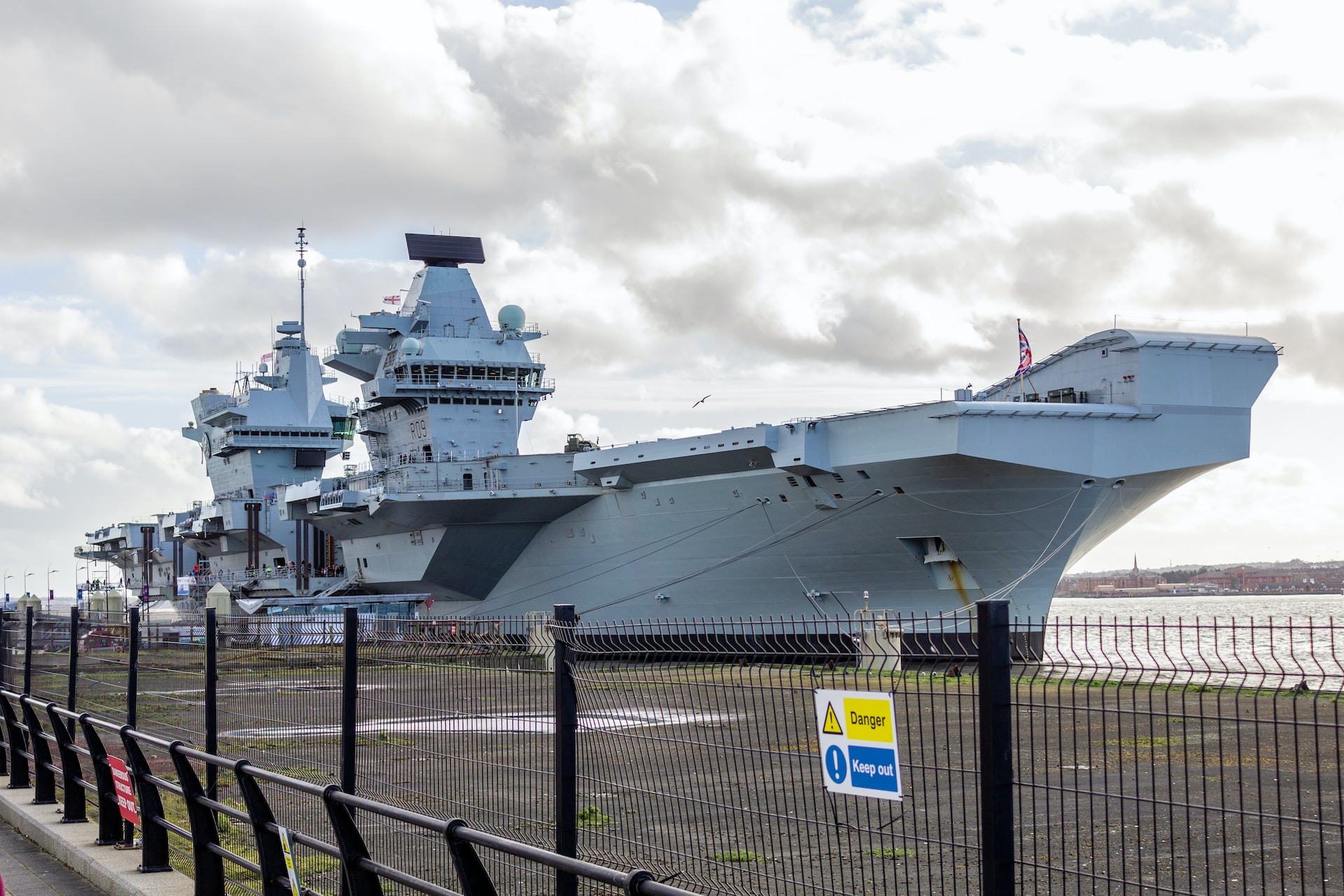The UK's new Fleet Solid Support ships - what's all the fuss about?

In November 2022, the MOD announced that 'Team Resolute' had been chosen to supply the Royal Navy's new Fleet Solid Support Programme (FSSP), ahead of 'Team UK' and Larsen & Toubro. The decision immediately sparked controversy due to the leading role that Spanish Government-owned Navantia would play in the consortium, compared to the all-British offering of 'Team UK'.
I didn't immediately understand why this was so controversial - after all the UK operates a lot of equipment with varying degrees of foreign content, and the Royal Navy's MARS tankers were built by DSME in South Korea. So while I understand the desire to maximise UK jobs and content, the decision didn't initially strike me as unusual.
Nevertheless, Opposition parties in the UK parliament continued to probe the MOD about the decision, and then at the end of January the Defence Committee held a session on the National Shipbuilding Strategy Refresh which covered FSSP in some depth. It proved to be a challenging session for guest witnesses Vice Admiral Paul Marshall CBE, Senior Responsible Officer Type 31 and FSS, and Commodore Stephen Roberts, Senior Responsible Officer Type 26. There were plenty of questions and a fair amount of criticism about delays to the Type 26, as well confusion as to where the mooted Type 32 sits in relation to the Type 31 programme, but the segment on FSSP particularly interested me from a strategic and procurement perspective.
Fleet Solid Support Programme - a recap
To recap - FSSP will provide the support ships necessary to provide underway replenishment of dry stores to deployed UK warships, particularly the Carrier Strike Group. The contract recently awarded to 'Team Resolute' is actually the result of the MOD's second go at running the procurement, with a previous competition halted in 2019 to ensure "requirements could be met" and a "value for money solution found". Crucially, when the competition was re-started in May 2021 the ships were re-classified as warships, allowing the UK Government greater freedom to restrict the competition to UK bidders.
At the moment the Royal Navy has only one ship capable of replenishing QE Class Carriers - RFA Fort Victoria, the last remaining Fort Class auxiliary that was launched in 1990. Fort Victoria had been scheduled to leave service with the arrival of the first new Fleet Solid Support ship in 2028, but the in-service date for FSSP appears to have slipped to 2030 so the life of Fort Victoria will likely need to be extended so that Carrier Strike Group deployments can continue.
The Secretary of State had previously indicated that 'Team Resolute' was selected as it was the only compliant bid for this £1.6bn programme.
So why the controversy?
For starters, the Prime Contractor taking the contract from the MOD is Navantia UK Ltd, a company formed in May 2022 with two Spanish Directors and no trading history. It is wholly owned by Navantia in Spain which in turn is ultimately controlled by the Spanish Government, giving the appearance of a 'flag of convenience' allowing the MOD to state it had let the contract with a UK company. The Defence Committee questioned the extent to which the Navantia UK subsidiary is to be underwritten by the Spanish parent company, with Vice Admiral Marshall stating "They have secured appropriate financial instruments to ensure that they can underwrite the programme".
Besides Navantia, 'Team Resolute' also comprises British maritime design house BMT and Belfast-based Harland & Wolff, where most of the UK build and assembly work will take place. Controversially, some of the build work will take place at Navantia's yard in Cadiz, but both Team Resolute and the MOD have been at pains to stress that the majority of the work will take place in the UK. But this is where the programme starts to look risky...
Harland & Wolff today is a shadow of its former self, and the FSSP will be the first ships to be built there since 2002. Defence Committee member Kevan Jones noted that the company expected to undertake the "majority" of this £1.8bn contract made a loss of £25.5m on revenue of £18.5m in 2021. It also had an average headcount of 267, way below the level needed to undertake the work, yet the programme has promised to create an additional 900 jobs in Belfast (with hundreds of others elsewhere and down the supply chain). It's fair to say that the requirement to quadruple headcount at Harland & Wolff has raised eyebrows, and under questioning Vice Admiral Marshall admitted this would be "challenging" and that "The mobilisation of the workforce is absolutely a key risk for the programme; it is probably the most significant risk that I see going forwards".
Additional jobs in Belfast are obviously welcome, and Navantia is undoubtedly a world-class shipbuilder. At the heart of the 'Team Resolute' bid is the promise that this large programme will provide £77m of infrastructure investment to reconstitute Harland & Wolff as a player in the naval shipbuilding world, with Navantia providing expertise and training for a much expanded workforce in Belfast. But what happens if Harland & Wolff fail to recruit and train these 900 extra employees quick enough, and then retain them?
The Navy can't afford further delays
Bearing in mind that the programme is already delayed, and that RFA Fort Victoria is over 40 years old, the Navy really can't afford further slippage in the FSSP if it wants to avoid impacting Carrier Strike Group deployments. If Harland & Wolff fail to generate the skilled workforce required then 'Team Resolute' will face two temptations:
- Transfer additional work from Belfast to Cadiz; or
- Recruit already skilled workers from outside of Belfast by either importing foreign staff or poaching from Babcock and BAE Systems.
and the pressure on the MOD to accept one or the other of those compromises will be significant if the alternative is a delay in delivering the ships. The Defence Committee was sceptical that the required workforce generation could be achieved, and questioned what control and safeguards the MOD had in place to ensure that the promised skilled jobs were created in Belfast. Vice Admiral Marshall stated "We will have visibility of that through the contract monitoring and the governance of the contract" and "We have absolutely appropriate protections in the contract" but refused to be drawn on the specifics of the contract.
What was the alternative?
It is understood that 'Team Resolute' was the only compliant bid, and Vice Admiral Marshall refused to be drawn on why the other two bids failed, stating "To preserve the integrity of the procurement and out of respect for the businesses, I do not think it is appropriate for me to comment". The competing 'Team UK' bid was led by British shipbuilding heavyweights Babcock and BAE Systems and based on a ferry design developed by Danish Naval Architects OSK-ShipTech. We don't know whether this bid was considered technically inferior, or whether Babcock and BAE Systems (already busy with the Type 31 and behind-schedule Type 26 programmes) were unable to meet the required in-service date.
My concern from an industrial strategy point of view is that should Harland & Wolff succeed with the FSSP, will the UK's future naval shipbuilding pipeline be sufficient to sustain an additional player? If not, many of those new, skilled jobs in Belfast could be lost from 2032 when the last of the 3 ships is scheduled to be completed.
I don't doubt that BMT knows how to design ships or that Navantia knows how to build them, but it's unusual to see workforce generation to so clearly be the biggest risk in a major UK MOD procurement programme.


